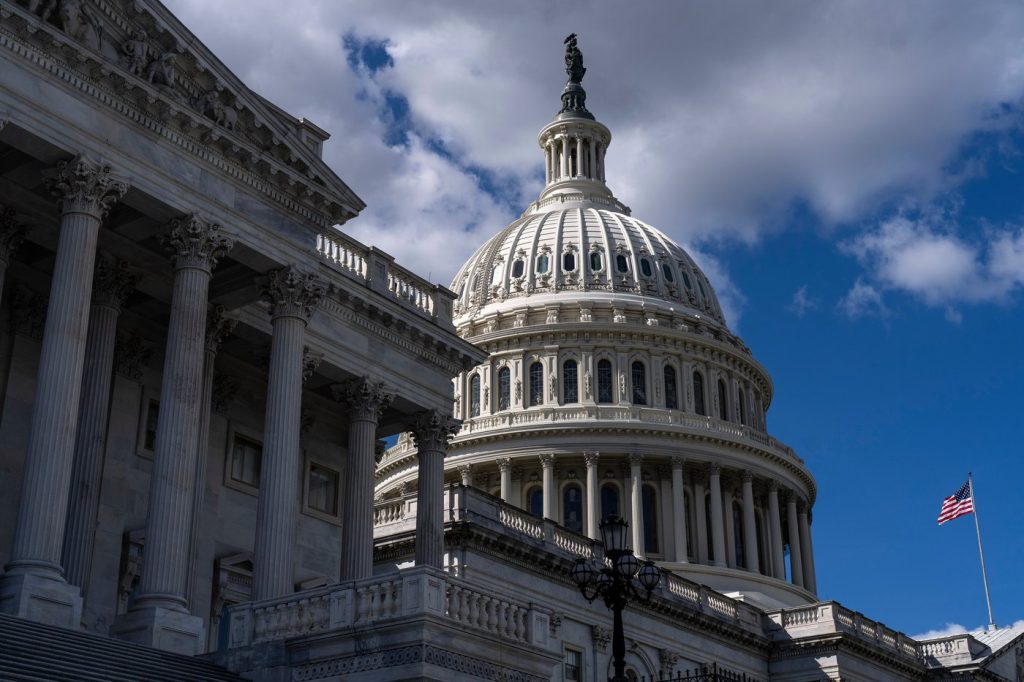World
Agencies Face Scrutiny Over Possible Hatch Act Violations

A question raised by a reader of the Associated Press has sparked debate over potential violations of the Hatch Act by federal agencies. Deanna, an AP reader, inquired whether agencies have breached the 1939 law by using language that blames Democrats in discussions about the ongoing government shutdown.
The Hatch Act restricts certain political activities by federal employees to ensure that government resources are not utilized for partisan purposes. Experts are divided on whether the messaging on the websites of the Department of Housing and Urban Development (HUD) and other government entities constitutes a violation of the law.
Legal Perspectives on Political Messaging
Kathleen Clark, a government ethics lawyer and law professor at Washington University, argues that the agencies have indeed crossed a line. In an interview, she stated, “These agencies are using federal resources, taxpayer-funded websites, to engage in partisan political messaging. The Hatch Act prohibits federal officials from using official resources that way.”
Conversely, Donald Sherman, the executive director of Citizens for Responsibility and Ethics in Washington, offers a different viewpoint. He contends that while the messages may discuss the Democratic Party in the context of policy differences rather than electoral issues, they are still “wildly inappropriate.” This highlights the complexity of interpreting the Hatch Act in today’s political climate.
On October 19, 2023, Democrats on the House Oversight Committee took action by sending a letter to the Office of Special Counsel, urging an investigation into the messages for what they describe as “apparent violations of the Hatch Act.” This move underscores the growing concern among lawmakers regarding the appropriateness of government communications during sensitive political situations.
Public Reaction and Implications
The inquiry into the use of partisan language by federal agencies raises significant questions about the role of government communication in a politically charged environment. As the shutdown continues to affect millions, the implications of perceived bias in official messaging could further strain the relationship between the government and the public.
The ongoing debate emphasizes the need for clarity on the boundaries of political discourse within federal agencies. As this situation develops, it remains crucial for government officials to navigate the fine line between informing the public and engaging in political rhetoric.
The question posed by Deanna reflects a broader public concern regarding the integrity of government communications. Whether this issue will lead to significant changes in how federal agencies communicate remains to be seen.
-

 Science2 months ago
Science2 months agoToyoake City Proposes Daily Two-Hour Smartphone Use Limit
-

 Health2 months ago
Health2 months agoB.C. Review Reveals Urgent Need for Rare-Disease Drug Reforms
-

 Top Stories2 months ago
Top Stories2 months agoPedestrian Fatally Injured in Esquimalt Collision on August 14
-

 Technology2 months ago
Technology2 months agoDark Adventure Game “Bye Sweet Carole” Set for October Release
-

 World2 months ago
World2 months agoJimmy Lai’s Defense Challenges Charges Under National Security Law
-

 Technology2 months ago
Technology2 months agoKonami Revives Iconic Metal Gear Solid Delta Ahead of Release
-

 Technology2 months ago
Technology2 months agoSnapmaker U1 Color 3D Printer Redefines Speed and Sustainability
-

 Technology2 months ago
Technology2 months agoAION Folding Knife: Redefining EDC Design with Premium Materials
-

 Technology2 months ago
Technology2 months agoSolve Today’s Wordle Challenge: Hints and Answer for August 19
-

 Business2 months ago
Business2 months agoGordon Murray Automotive Unveils S1 LM and Le Mans GTR at Monterey
-

 Lifestyle2 months ago
Lifestyle2 months agoVictoria’s Pop-Up Shop Shines Light on B.C.’s Wolf Cull
-

 Technology2 months ago
Technology2 months agoApple Expands Self-Service Repair Program to Canada









